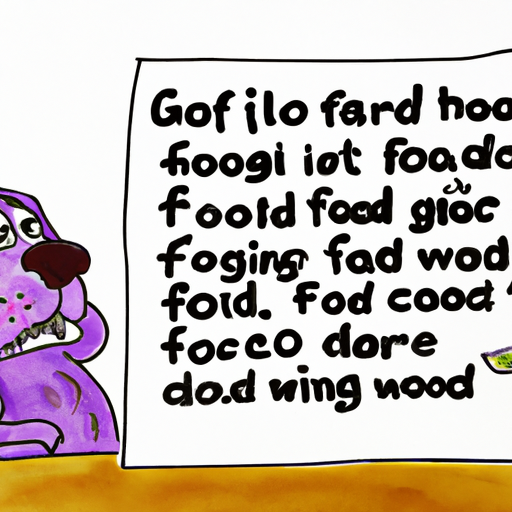Let’s face it. We all love to spoil our furry friends with delicious treats. But as a responsible caregiver, you need to be aware of the foods that can potentially harm your canine companion. In this article, we will explore five food categories that should be kept off your dog’s menu.
1. Chocolate and Caffeine
You’ve probably heard it before, but it’s worth repeating: chocolate and caffeine are a big no-no for dogs.
Why so?
They contain theobromine and methylxanthines, substances that dogs cannot metabolize effectively.
- Dark chocolate and baking chocolate are especially dangerous due to their high levels of theobromine.
- Coffee, tea, and energy drinks also contain harmful methylxanthines.
The effects can range from vomiting and diarrhea to seizures, irregular heartbeat, and even death.
2. Grapes and Raisins
Despite their healthy reputation for humans, grapes and raisins can cause kidney failure in dogs.
- It’s not clear why, or how many grapes or raisins will cause problems.
- Symptoms include vomiting, abdominal pain, and lethargy.
Always keep these fruits out of your dog’s reach.
3. Onions and Garlic
Onions and garlic, including their powdered forms, can damage a dog’s red blood cells, leading to anemia.
- This is true for all members of the onion family, including shallots, leeks, and chives.
- Symptoms may not appear for several days but can include weakness, panting, and pale gums.
Never include these spices in your dog’s meals.
4. Alcohol
This might seem obvious, but dogs should never consume alcohol.
- Alcohol affects dogs much more severely than humans.
- Even small amounts can cause vomiting, diarrhea, difficulty breathing, tremors, and even death.
Keep your drinks safely out of paw’s reach.
5. Xylitol
Xylitol is a sugar substitute found in many products, including sugar-free gum, baked goods, and toothpaste.
- In dogs, xylitol can stimulate a rapid release of insulin, causing hypoglycemia (low blood sugar).
- It can lead to loss of coordination, seizures, and liver failure.
Always check product labels and keep xylitol-containing items away from your dog.
Frequently Asked Questions (FAQs)
Q: Can my dog eat cheese?
A: In moderation, cheese can be safe for dogs. However, some dogs might be lactose intolerant, so observe your dog carefully.
Q: Are eggs safe for dogs?
A: Yes, eggs are safe for dogs. They are a great source of protein but should be cooked to avoid the risk of salmonella.
Q: Can dogs eat apples?
A: Yes, dogs can eat apples, but the seeds should be removed as they contain cyanide.
Q: Why can’t dogs eat chocolate?
A: Chocolate contains theobromine, a substance that can cause serious health issues in dogs, including irregular heartbeat and seizures.
Q: Can dogs eat peanut butter?
A: Yes, but make sure it doesn’t contain xylitol, a harmful artificial sweetener.
Remember, when in doubt, it’s always best to consult with your vet about your dog’s dietary needs and restrictions.



